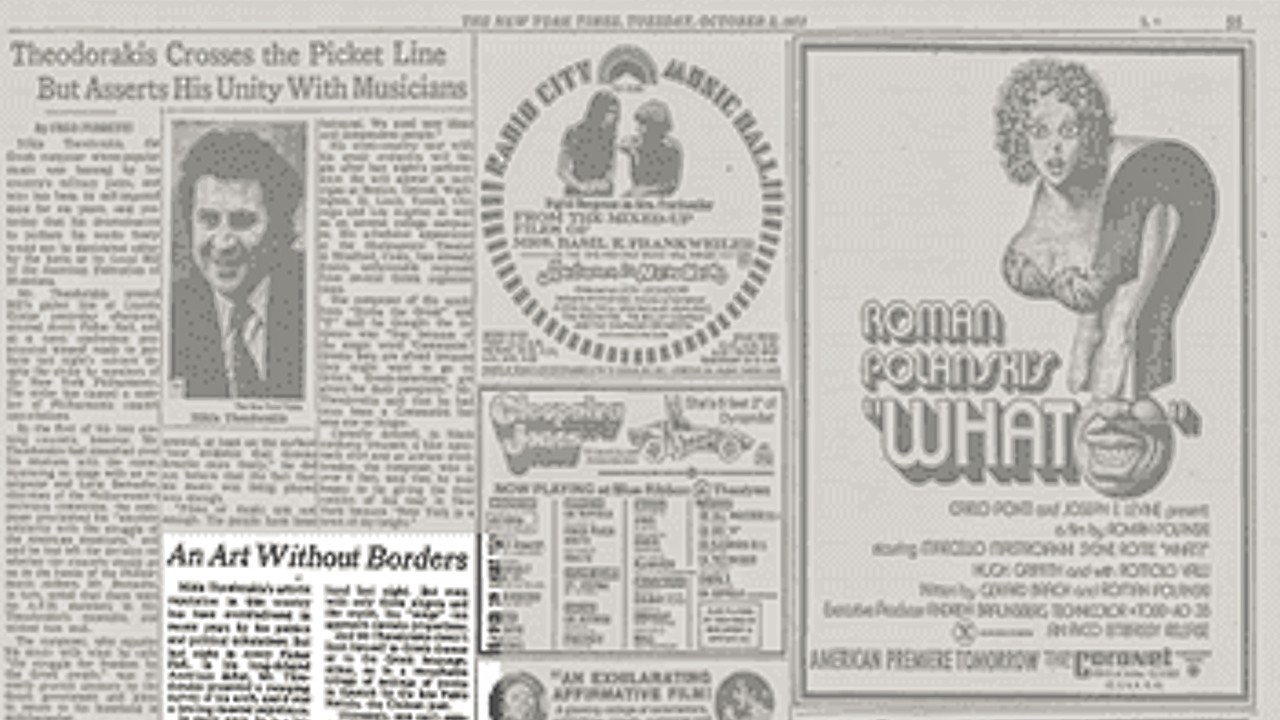
Η καλλιτεχνική φήμη του Μίκη Θεοδωράκη στη χώρα αυτή επισκιάστηκε τα τελευταία χρόνια από τις πολιτικές και πολιτικές του δοκιμασίες. Χθες όμως το βράδυ στο Avery Fisher Hall, στο πολυαναμενόμενο αμερικανικό ντεμπούτο του, ο κ. Θεοδωράκης παρουσίασε μια σαρωτική επισκόπηση της δουλειάς του, η οποία ήταν μια συγκλονιστική μουσική εμπειρία…
Τα έργα του κ. Θεοδωράκη, παρ’ όλη τη σημαντική εγγενή αξία τους, ξεπερνούν τον φορμαλισμό και τον ατομικισμό για να προτείνουν κάτι ακαταμάχητα κοινοτικό. Εύκολα καταλαβαίνει κανείς, μετά τη χθεσινοβραδινή συναυλία, γιατί αυτό είναι το είδος της μουσικής που κάποιοι αισθάνονται ότι πρέπει να απαγορεύσουν.

An Art Without Borders
Mikis Theodorakis’s artistic reputation in this country has been overshadowed in recent years by his politics and political tribulations. But last night in Avery Fisher Hall, in his long‐delayed American debut, Mr. Theodorakis presented a sweeping survey of his work, and it was a bracing musical experience.
In many ways, he is a latter‐day 19th‐century nationalist composer, a classically trained musician who has deliberately reverted to the folk idioms of his native land. The elements behind Mr. Theodorakis’s music are Simple enough: stirring tunes; infectious dance rhythms, and the ever‐present exotic color of the bouzoukis, mandolinlike Greek instruments that comprised three ‐ sevenths of last night’s instrumental septet.
Mr. Theodorakis makes brilliant, inventive use of his popular materials, but he quickly transcends them. Without forgetting for a moment the emotions of his audiences, he builds ingeniously complex statements from simple beginnings. He has written for more elaborate forces than he had on hand last night. But even with only three singers and the septet, his “songs” can approach cantata proportions.
And Mr.Theodorakis doesn’t limit himself to Greek themes or to the Greek language, either, as in a remarkable trilogy of settings of poems in Spanish by the late Pablo Neruda, the Chilean poet.
Ultimately, one can’t separate Mr. Theodorakis’s politics from his music. He shares Beethoven’s libertarian idealism and Paderewski’s patriotic political involvement, and those concerns are inevitably mirrored in his art. What came over in his music, and in the passionate performances of his three singers—Maria Farantouri, Afroditi Manou and Petros Pandis—was a romantic feruor that is instantly communicable to any audience.
Mr. Theodorakis’s works, for all their considerable intrinsic merit, reach out beyond formalism and individualism to suggest something irrestibly communal. One can easily understand, after last night’s concert, why this is the sort of music some people feel they must ban.
